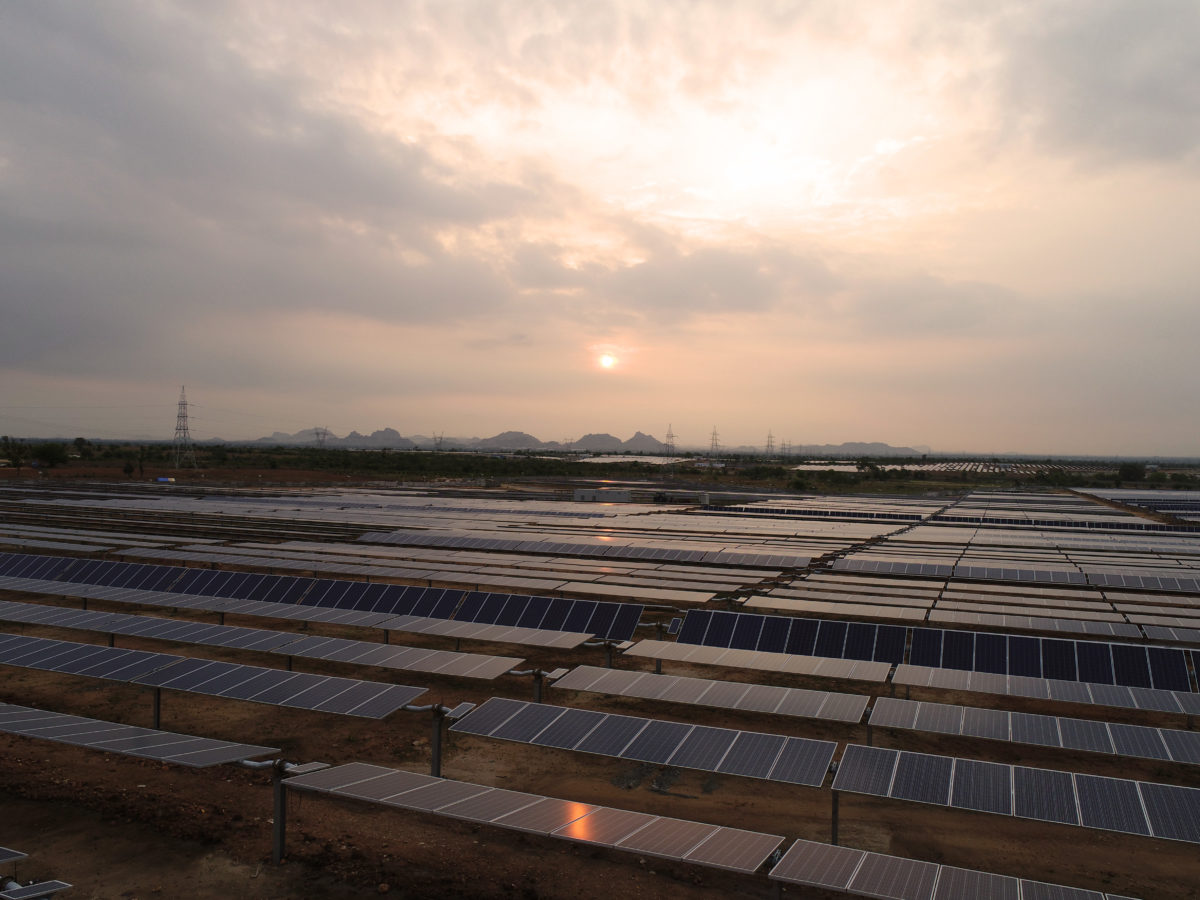Suzlon Group, one of India’s largest renewable energy solutions provider, particularly in wind, has commissioned solar power turnkey projects totaling 340 MW across three states.
The three projects are located in the state of Telangana (210 MW), Rajasthan (60 MW) and Maharashtra (70 MW). The total electricity to be generated is approximately 744 million kWh annually, a Suzlon official told pv magazine.
The official provided the details of only Telangana projects, adding that other states details cannot be revealed due to a confidentiality clause.
For the five projects in Telangana (totaling 170 MW) the levelized tariff was fixed for 100 MW at INR 5.59 ($0.086)/kWh; 15 MW at INR 5.51/kWh; 15 MW at INR 5.54/kWh; 15 MW at INR 5.54/kWh; and 15 MW at INR 5.59/kWh.
When asked about any new projects in the pipeline, the official said: “Wind-solar hybrid is a key focus area for us, which will lead to better utilization of the grid due to their complementary generation profiles.
“It will also save on duplication of costs such as land and evacuation infrastructure. We have an edge due to our existing large land bank, technologically advanced products and nationwide operations and maintenance (O&M) strength.”
With the commissioning of the 340 MW, Suzlon has completed the delivery of its entire solar order book. The projects have been executed by a combination of joint ventures, or the formation of Special Purpose Vehicles (SPVs) with various partners.
SPVs are a legal entity (usually a limited company of some type or, sometimes, a limited partnership) created to fulfill narrow, specific or temporary objectives. SPVs are typically used by companies to protect the firm from financial risk.
SPV is a subsidiary company with the purpose of facilitating the parent company’s financial arrangements, including leverage and speculative investments, without compromising the entire group. That said, if the SPV goes bankrupt, the mother company is not affected. If the mother parent goes bankrupt, the SPV is protected. Usually, SPVs are used for securitization purposes and are allowed to finance, buy and sell assets.
“Some of the partners included CLP India Pvt Ltd, Canadian Solar Inc, AMP Solar, Ostro Energy Pvt Ltd, and Unison Energy LLC,” the official outlined.
This content is protected by copyright and may not be reused. If you want to cooperate with us and would like to reuse some of our content, please contact: editors@pv-magazine.com.








A superb comeback by the once financial crises ridden Suzlon. It was a time when wind was their only business. A sluggish market couples with mistakes committed by Suzlon had put them miles behind. Apart from CDR, far sighted vision by spread of their wings into Solar has pulled them up tremendously.
Ups and Downs are common in business. All what matters is how you sustain while at low ebb and how fast the entity comes out. Suzlon today stands as an example to other debt strapped companies and those that are in peril